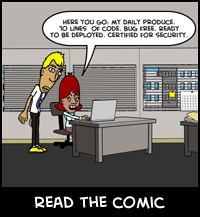Are stand alone programs set to join the same league as stand alone computers?
As many of our customers know, we are getting ready to release our "paid plans". While this is exciting, as we will finally earn money with Apollo, there is always the other side of the coin: organising a good, reliable, convenient merchant account. This involves, amongst other things, to fill out a staggering number of forms.


